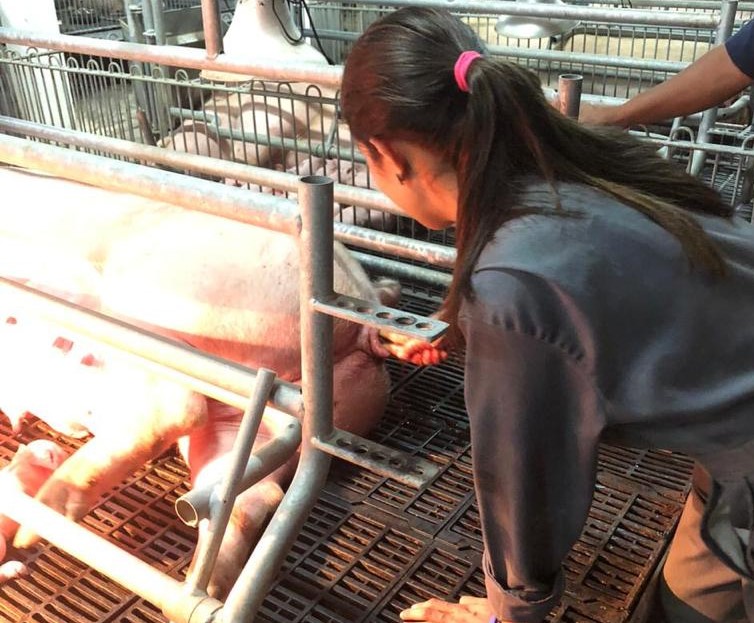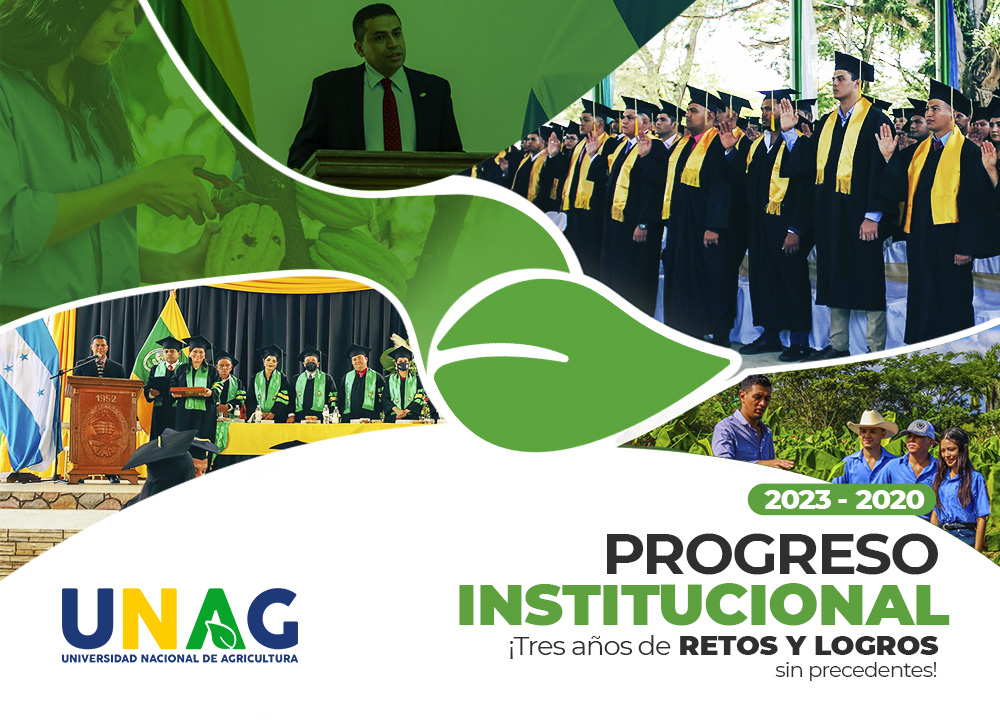
- Área de desempeño profesional: Avicultura
- Correo electrónico: fmvz@unag.edu.hn
La Carrera de Medicina Veterinaria nace en respuesta a las necesidades del sector pecuario del país, de las demandas de los gobiernos locales y de las mismas aspiraciones de la juventud y la población hondureña y olanchana en particular. Se potencia como una alternativa para combatir la pobreza, habiendo formado a la fecha 151 profesionales conscientes de su rol protagónico en la asistencia veterinaria para la salud de los hatos ganaderos, animales de compañía y silvestres, contribuyendo a garantizar la salud pública del pueblo hondureño, así como generando empleos, promoviendo una mejor calidad de productos pecuarios para su comercialización y generando mayores divisas al país. Así mismo constituye una contribución en rubros donde el país tiene un potencial competitivo como la industria láctea, cárnica, acuícola y avícola, entre otras, actuando con responsabilidad social y ambiental.

Misión
Formar profesionales en el ámbito de la salud animal, velando por el control y erradicación de enfermedades zoonóticas que afectan las poblaciones animales y humanas, así como desarrollar competencias integrales y sentido de innovación en el sector alimentario, que les permitan responder a los desafíos de la sociedad.
Visión
La Carrera de Medicina Veterinaria en el grado de Licenciatura, será reconocida como a una oferta académica de excelencia, comprometida con los intereses de la comunidad hondureña y latinoamericana, como una opción investigativa y de previsión de la salud animal y bienestar humano, ejecución de programas y proyectos de impacto en el sector alimentario, que promuevan la cooperación intelectual, científica, tecnológica y financiera, de sistema de enseñanza superior especializado, nacionales e internacionales.
El Médico Veterinario graduado de la Universidad Nacional de Agricultura está en la capacidad de:
Así mismo, el graduado también desarrolla Competencias Específicas, que aportan a su “saber profesional,” por ello el Médico Veterinario graduado en la Universidad Nacional de Agricultura es un profesional con espíritu ético, crítico, científico y humanista que, considerando las necesidades sociales, mejora la calidad de vida del hombre y los animales a través de conocimientos y habilidades clínicas y zootécnicas para garantizar la sanidad animal de las especies domésticas y silvestres y la salud pública, utilizando las tecnologías limpias, sostenibles y renovables; interviniendo en el control y protección de los alimentos, prevención de la salud humana y del ambiente, actuando con mentalidad empresarial responsable y capacidad de gestión y liderazgo para solucionar los problemas del entorno, sustentándose en la investigación científica y transferencia tecnológica.
La siguiente galería contiene imágenes explícitas de ciertas labores y prácticas de los estudiantes y docentes de la carrera de Medicina Veterinaria, algunas de estas imágenes pueden afectar a personas que sean susceptibles.

